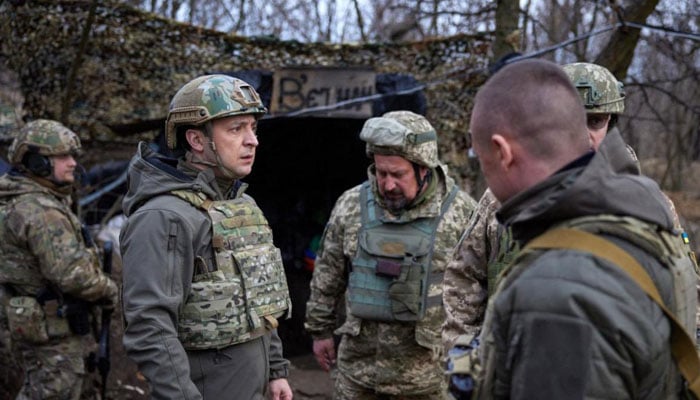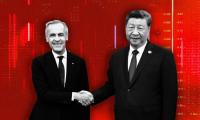Biggest build-up in Europe since 1945: Russian invasion of Ukraine rattles global markets
IMF MD Georgieva said she was “deeply concerned” about the impact on the people of Ukraine, and cautioned that the fighting “adds significant economic risk for the region and the world
KYIV: Russian President Vladimir Putin launched a full-scale invasion of Ukraine prompting IMF to warn the conflict will have repercussions for the global economic recovery. The blitz roiled global financial markets, with stocks plunging and oil prices soaring past $100 and the European wheat prices hitting a record high on expectations of lower supplies as Ukraine and Russia are two of the world’s biggest producers.
As the multipronged Russian invasion left scores dead, IMF MD Georgieva raised a red flag, saying she was “deeply concerned” about the impact on the people of Ukraine, and cautioned that the fighting “adds significant economic risk for the region & the world.” Russian President Vladimir Putin said, “I have decided to proceed with a special military operation.” In his televised address, he justified the assault as a defence of the self-proclaimed Donetsk and Lugansk republics in eastern Ukraine. He said Moscow had no other choice but to invade Ukraine to ensure Russia’s security, adding that “we had no other way of proceeding”. Shortly afterwards, the first bombardments were heard in Ukraine’s capital, Kyiv, and several other cities, according to AFP correspondents.
Just hours before Moscow sent troops into its neighbour’s territory, the websites of several Ukrainian banks and government agencies were disabled by so-called denial of service (DDoS) attacks that Kyiv claimed were of Russian origin. Cyber security firm ESET said Wednesday that malware capable of erasing data had been found on hundreds of computers in Ukraine, an attack that appears to have been planned two months ago. Across the country, at least 68 people were killed, including both soldiers and civilians, according to an AFP tally from Ukrainian official sources. BBC reported Russian forces had invaded Ukraine from multiple directions, including from the separatist regions in the Donbas to the east, Belarus to the north and from occupied Crimea to the south. Much of the fighting appears to be centred around the east. Air raid sirens sounded over Kyiv at the break of dawn after the city’s main airport was hit in the first bombing of the city since World War II. Russia’s defence ministry said it had destroyed over 70 military targets, including 11 airfields. The US officials said Russian attacks have included “roughly more than 100 Russian-launched missiles including short-range ballistic missiles” as the primary weapon, but the number also included “medium-range ballistic missiles, cruise missiles, surface-to-air missiles,” and “sea-launched missiles from the Black Sea.”
At least 75 fixed-wing heavy and medium bombers were part of the initial attack, the official said. Air strikes were carried out on Ukrainian military bases and airports, with fierce fighting reported around a key airport near Kyiv. Russia initiated “some ground incursions” into Ukraine from Belarus, northwest of Kyiv, the official added. Russian armoured columns made rapid progress, south from the border with Belarus and north from the Crimean peninsula. Russian airborne troops have taken control of the Antonov Airport, which is about 25 miles away from the center of Kyiv, Ukraine, CNN’s Matthew Chance reported. An AFP reporter in the northern part of the city saw several low-flying helicopters overhead. In the deadliest single strike reported by authorities, 18 people were killed at a military base near Black Sea port city of Odessa. Ukraine’s emergency services also said a military plane with 14 people on board crashed south of Kyiv.
The Ukrainian national guard said it has launched a counter offensive. Ukrainian forces said they had killed “around 50 Russian occupiers” while repulsing an attack on a town on the frontline with Moscow-backed rebels, a toll that could not be immediately confirmed by AFP. Ukrainian President Volodymyr Zelensky declared martial law and accused Russia of acting like “Nazi Germany” but asked people not to panic and promised victory. Kyiv’s Mayor Vitali Klitschko has announced a curfew from 10 pm to 7 am local time.
Kremlin spokesman Dmitry Peskov said the operation would last as long as necessary, saying there were “goals that need to be achieved”. “Ideally, Ukraine needs to be liberated and cleansed of Nazis,” he told reporters. In the eastern Ukrainian town of Chuguiv, a son wept over the body of his father among the wreckage of a missile strike in a residential district. Elena Kurilo, a 52-year-old teacher was among 20 wounded recovering in hospital after a blast sent shards of glass from her windows into her face.
IMF Managing Director Kristalina Georgieva warned the conflict in Ukraine will have repercussions for the global economic recovery. Georgieva said she was “deeply concerned” about the impact on the people of Ukraine, and cautioned that the fighting “adds significant economic risk for the region & the world.” The International Monetary Fund continues to assess the economic impact, but will “stand ready to support our members as needed,” she said on Twitter. The Washington-based crisis lender is in the process of deploying $2.2 billion in assistance to Ukraine under a loan program set to end in June.
Georgieva has said the fund could provide aid to other countries impacted by any spillover effects of the conflict if needed. The fighting roiled global financial markets, with stocks plunging and oil prices soaring past $100. European wheat prices also hit a record high on expectations of lower supplies as Ukraine and Russia are two of the world’s biggest producers. Agricultural commodities have recently seen spectacular spikes and drops provoked by Russia’s looming invasion of Ukraine.
The stakes are especially high for wheat, with Russia being the world’s top exporter and Ukraine the fourth, according to estimates by the US Department of Agriculture (USDA).The consequences for agricultural markets of Russia’s invasion are still difficult to predict. The price of wheat smashed its previous record high in European trading putting a question mark on the future of exports from two of the world’s biggest producers of the key commodity. Wheat soared to 344 euros ($384) a ton, far above its previous record of 313.5 euros recorded late last year, said Edward de Saint-Denis of the brokerage firm Plantureux & Associates. It later fell back to around 320 euros a ton. The price of corn meanwhile shot up to 304 euros a ton.In Italy, which imports a majority of its wheat and corn, the Coldiretti agricultural association sounded the alarm on Thursday.
Announcing sanctions, US President Joe Biden said that the Russian invasion of Ukraine betrays the “sinister vision” of Vladimir Putin. In his remarks, Biden said that the operation was never about “genuine” Russian security concerns, but instead was about naked aggression and Putin’s desire “for empire”. “Putin’s actions betray his sinister vision for the future of our world, one where nations take what they want by force,” Biden said. “But it is a vision that the United States and freedom-loving nations will oppose.”
Biden announced new strong sanctions and limitations on what can be exported to Russia. The United States is not doing this alone, he said, adding that the 27 EU members and G7 members will participate in these sanctions.They include limiting Russia’s ability to do business in dollars, euros, pounds and yen to be part of the global economy, stop its ability to finance and grow the Russian military and impair ability to compete in high-tech 21st Century economy. He added, “We’re also blocking four more major banks. That means every asset they have in America will be frozen.”
Earlier, Biden spoke with Zelensky, condemned the “unprovoked and unjustified attack,” and vowed Russia would be held accountable. The Biden administration is considering moving more US forces already in Europe to countries further east, according to a US official familiar with the matter. Six F-35s will arrive in Estonia, Lithuania and Romania today, the official said. The group of attack helicopters “are on their way,” the official said. “We still expect those Apaches to get on site later today,” the official said. The US Secretary of Defense has ordered the deployment of 7,000 US service members to Europe, a senior defense official told reporters.
Britain is freezing the UK assets of Russian titans in banking and arms manufacturing, sanctioning five more oligarchs and banning Aeroflot from its airspace, Prime Minister Boris Johnson said. He told parliament that President Vladimir Putin “will never be able to cleanse the blood of Ukraine from his hands”. “Putin was always determined to attack his neighbour no matter what we did,” Johnson added, calling him a “blood-stained aggressor who believes in imperial conquest”. The assets blockage affects more than 100 Russian entities including VTB, one of Russia’s largest banks, and Rostec, a giant military conglomerate, sanctions on five more oligarchs close to Putin including his former son-in-law Kirill Shamalov, and banning Aeroflot from British airspace, UK officials said. The government will accelerate an “Economic Crime Bill”, notably to prise open the real ownership of Russian-held assets. Britain is freezing the UK assets of Russian titans in banking and arms manufacturing, sanctioning five more oligarchs and banning Aeroflot from its airspace,
NATO said it would hold a virtual summit and activate “defence plans” but NATO chief Jens Stoltenberg said: “We don’t have any plans to send NATO troops into Ukraine”. As Western allies work on their coordinated response, the European Union was split on taking the controversial step of cutting Russia off from SWIFT, making it almost impossible for financial institutions to send money in or out of the country. This would seriously impact Russian businesses.
In a joint statement following a virtual meeting, the leaders of the G7 condemned President Putin for his consistent refusal to engage in a diplomatic process to address questions pertaining to European security, despite our repeated offers, the statement read. In Brussels, EU foreign policy chief Josep Borrell said Russia would be hit with the “harshest sanctions” the European Union has ever imposed. French President Emmanuel Macron said the events were a “turning point in the history of Europe”.
In a related development, the invasion of Ukraine is taking place during an unprecedented crackdown on the Russian opposition, with most protest leaders assassinated, jailed or forced out of the country. Russian police detained more than 700 people at anti-war protests across dozens of cities, an independent monitor said. Around 2,000 people gathered near Pushkin Square in central Moscow, while up to 1,000 people gathered in the former imperial capital Saint Petersburg, according to AFP correspondents at the scene.
UN Secretary-General Antonio Guterres told reporters the “decisions of the next few days will shape our world” after Russia invaded Ukraine. Guterres reiterated his comments that the attack is wrong and a repudiation of the principles of the UN charter. He added that though the decision is not irreversible, Russia has given no sign of pulling back. A Security Council resolution regarding the Russian attack on Ukraine is privately being discussed among United Nations Security Council member states, according to two UN diplomats.
-
 Jason Momoa Cherishes Hosting Ozzy Osbourne's Final Gig Ahead Of His Death
Jason Momoa Cherishes Hosting Ozzy Osbourne's Final Gig Ahead Of His Death -
 Real Reason Timothee Chalamet Thanked Kylie Jenner At Awards Revealed
Real Reason Timothee Chalamet Thanked Kylie Jenner At Awards Revealed -
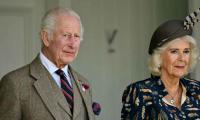 Will King Charles Attend Funeral Of Prince Philip's First Cousin, Princess Irene?
Will King Charles Attend Funeral Of Prince Philip's First Cousin, Princess Irene? -
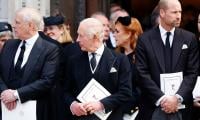 'Furious' Prince William Wants Andrew As Far Away As Possible
'Furious' Prince William Wants Andrew As Far Away As Possible -
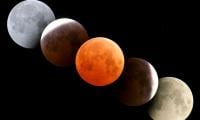 Blood Moon: When And Where To Watch In 2026
Blood Moon: When And Where To Watch In 2026 -
 Apple Foldable IPhone Tipped For 2026 Launch With A20 Pro Chip And C2 Modem
Apple Foldable IPhone Tipped For 2026 Launch With A20 Pro Chip And C2 Modem -
 Meghan Lends Credence To Reports Of Rift With Kim Kardashian On Chicago's Birthday
Meghan Lends Credence To Reports Of Rift With Kim Kardashian On Chicago's Birthday -
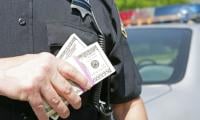 Florida Woman’s Alleged Bid To Bribe Police Ends In Unexpected Discovery
Florida Woman’s Alleged Bid To Bribe Police Ends In Unexpected Discovery -
 James Van Der Beek Strongly Opposes The Idea Of New Year In Winter
James Van Der Beek Strongly Opposes The Idea Of New Year In Winter -
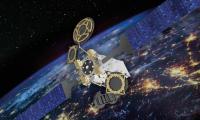 Elon Musk’s Starlink Rival Eutelsat Partners With MaiaSpace For Satellite Launches
Elon Musk’s Starlink Rival Eutelsat Partners With MaiaSpace For Satellite Launches -
 Fans Feel For Leonardo DiCaprio As He Gets Awkwardly Snubbed: Watch
Fans Feel For Leonardo DiCaprio As He Gets Awkwardly Snubbed: Watch -
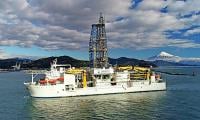 Japan Launches The World’s First Trial To Extract Rare Earth Elements
Japan Launches The World’s First Trial To Extract Rare Earth Elements -
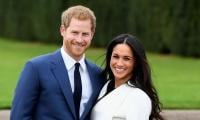 Prince Harry Breaks Cover In California Amid Tension At Home With Meghan Markle
Prince Harry Breaks Cover In California Amid Tension At Home With Meghan Markle -
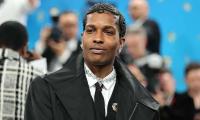 ASAP Rocky Makes Massive Comeback With New Album
ASAP Rocky Makes Massive Comeback With New Album -
 Amanda Seyfried Unveils How Channing Tatum Teased Her On 'Dear John' Set
Amanda Seyfried Unveils How Channing Tatum Teased Her On 'Dear John' Set -
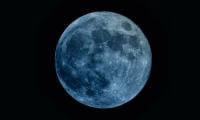 Blue Moon 2026: Everything You Need To Know
Blue Moon 2026: Everything You Need To Know
